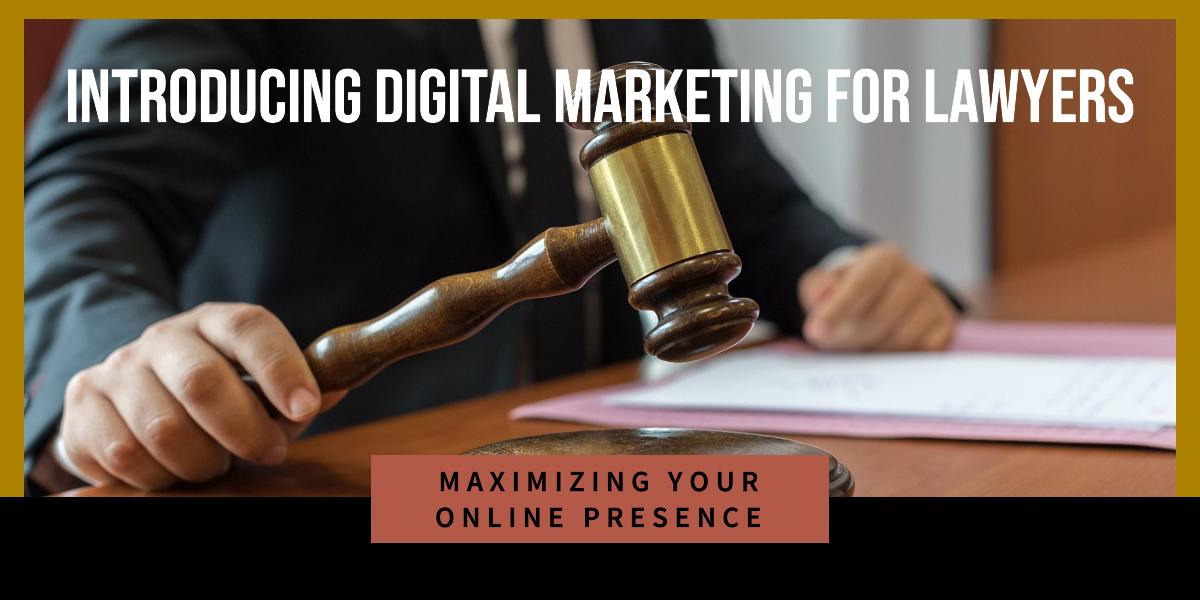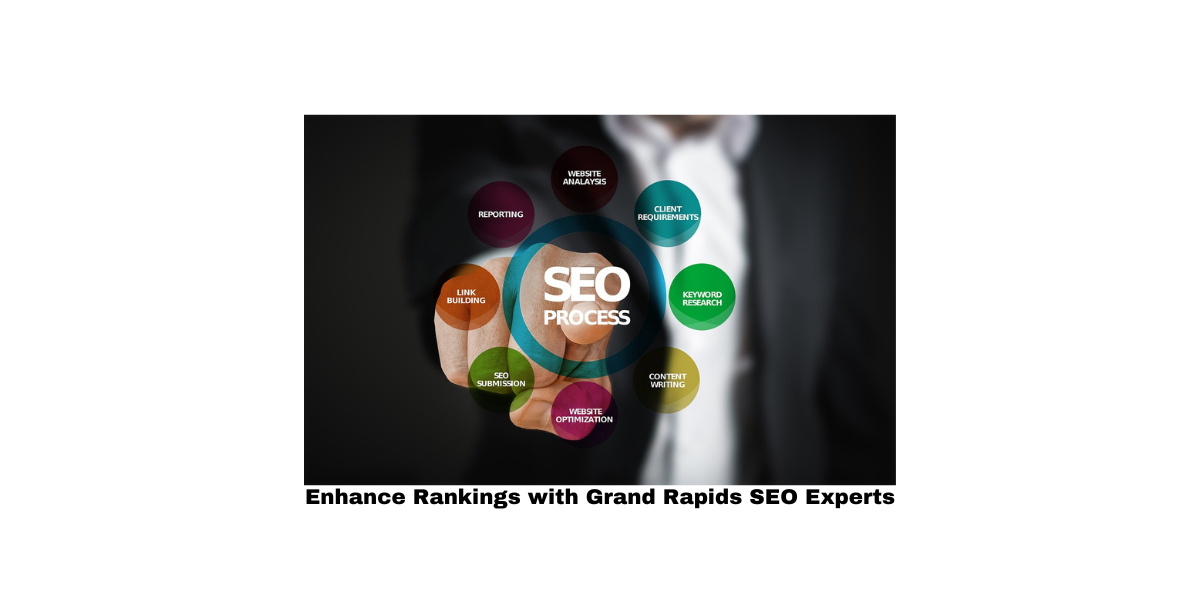Introduction to Digital Marketing for Lawyers
A. Understanding the digital landscape. The legal industry has witnessed a significant transformation in recent years due to the digital revolution. As potential clients increasingly turn to online platforms to search for legal services, it becomes imperative for lawyers to embrace digital marketing strategies to remain competitive.
B. Why digital marketing for lawyers is crucial. Digital marketing offers lawyers a powerful tool to reach their target audience, enhance brand visibility, and establish credibility. It allows lawyers to connect with potential clients on a personal level, showcase expertise, and drive valuable leads.
Building a Strong Online Presence

A. Creating an impressive website design for attorneys is imperative. A well-designed and user-friendly website is the cornerstone of a lawyer’s online presence. The website should feature a clear and compelling layout, easy navigation, informative content, and effective calls-to-action to engage visitors.
B. Crafting a compelling lawyer bio. An attorney’s bio plays a pivotal role in establishing credibility and building trust. Lawyers should craft a compelling bio that highlights their expertise, experience, and achievements, while also conveying a sense of relatability and approachability.
C. Social Media tips for lawyers also includes the leveraging of branding social media platforms provide lawyers with an opportunity to showcase their personality, interact with clients, and share valuable insights. Lawyers can strategically use platforms like LinkedIn, Twitter, and Facebook to enhance their brand image and engage with their target audience.
Search Engine Optimization (SEO) for Lawyers

A. Keyword research for legal services. Effective SEO for lawyers begins with thorough keyword research. Lawyers should identify relevant keywords and phrases that potential clients use when searching for legal services and integrate these keywords naturally into their website content.
B. On-Page SEO Best Practices. Lawyers should optimize their website’s on-page elements, such as meta tags, headings, and image alt text, to improve search engine visibility. High-quality, informative content that addresses common legal questions can help establish authority and boost rankings.
C. Local SEO Strategies for Lawyers. For lawyers with a local clientele, local SEO for lawyers is crucial. Optimizing Google My Business profiles, obtaining positive reviews, and ensuring consistent NAP (Name, Address, Phone Number) information across online directories can improve local search rankings.
Content Marketing for Lawyers

A. Creating Informative Legal Blog Posts, or blogging for law firms, allows lawyers to share their expertise, answer common legal questions, and establish themselves as thought leaders. Regularly publishing informative and relevant blog posts can attract organic traffic and engage potential clients.
B. Crafting Engaging Legal Videos provide a dynamic medium for lawyers to explain complex legal concepts, showcase their personality, and connect with viewers on a personal level. Lawyers can create informative video content, such as explainer videos, Q&A sessions, and case studies.
C. Designing Compelling Infographics for Legal Topics. Infographics are visually appealing tools to simplify complex legal information. Lawyers can create infographics that explain legal processes, rights, or regulations, making it easier for potential clients to understand intricate legal matters.
Social Media Marketing for Lawyers

A. Social Media management for lawyers can build a strong community presence. Lawyers should choose social media platforms aligned with their target audience and practice areas. Consistent posting, engagement with followers, and sharing valuable legal insights can help build a strong social media presence.
B. An effective content strategy for lawyers includes legal content on social media. Sharing legal tips, updates on recent legal developments, and success stories can resonate with followers and demonstrate expertise. Lawyers should use a mix of text, images, and videos to create engaging content.
C. Utilizing Social Media Advertising for Lawyers. Paid social media advertising allows lawyers to reach a highly targeted audience. By using demographic and interest-based targeting, lawyers can promote their services to individuals most likely to require legal assistance.
Email Marketing Strategies for Lawyers

A. Building and Growing a Targeted Email List. Lawyers can gather email addresses through their website, events, and social media. Building a segmented email list enables personalized communication tailored to the recipients’ interests and needs.
B. Creating Engaging Email Newsletters for Clients. Regular newsletters can provide valuable legal insights, updates on recent cases, and information about legal changes. Including interactive elements, such as polls or quizzes, can encourage client engagement.
C. Nurturing Leads with Email Campaigns. Email campaigns can guide potential clients through the decision-making process. Lawyers can send a series of informative emails that address common concerns and establish trust before offering their legal services.
Pay-Per-Click (PPC) Advertising for Lawyers

A. Understanding the Basics of PPC Advertising. PPC advertising allows lawyers to bid on keywords and have their ads displayed at the top of search engine results. It provides instant visibility and can drive targeted traffic to the lawyer’s website.
B. Creating Effective PPC Campaigns for Legal Services. Lawyers should create highly relevant ad copy and choose targeted keywords to ensure their ads appear to users seeking specific legal services. Landing pages should be optimized for conversions.
C. Measuring and Optimizing PPC Performance. Regularly monitoring PPC campaigns and analyzing key metrics, such as click-through rates and conversion rates, enables lawyers to make data-driven decisions and optimize their campaigns for better results.
Video Marketing for Lawyers

A. Harnessing the Power of Video Marketing. Videos humanize lawyers and allow them to convey their expertise and personality effectively. Lawyers can create videos discussing legal topics, providing tips, or sharing success stories.
B. Creating Compelling Legal Videos for YouTube. YouTube is a powerful platform for hosting legal videos. Lawyers can optimize video titles, descriptions, and tags for relevant keywords to increase visibility and attract subscribers.
C. Leveraging Webinars and Live Streaming for Lawyers. Hosting webinars or live streaming sessions allows lawyers to interact with a live audience, answer questions in real-time, and position themselves as authorities in their field.
Online Reputation Management for Lawyers

A. Monitoring and Managing Online Reviews. Positive online reviews can significantly impact a lawyer’s reputation. Lawyers should encourage satisfied clients to leave reviews and promptly address any negative feedback to showcase professionalism and responsiveness.
B. Handling Negative Publicity and Crisis Management. In the event of negative publicity, lawyers should respond calmly and professionally, addressing concerns and offering solutions. Transparency and open communication can help mitigate potential damage.
C. Building a Positive Online Reputation. Consistently delivering high-quality service, engaging with clients online, and showcasing expertise through thought leadership can contribute to a positive online reputation.
Influencer Marketing for Lawyers

A. Identifying and Collaborating with Legal Influencers. Lawyers can collaborate with legal influencers, such as well-respected legal bloggers or industry experts, to expand their reach and credibility.
B. Leveraging Influencers to Reach New Audiences. Influencers can introduce lawyers to their followers, providing a valuable opportunity to showcase expertise and establish trust with a wider audience.
C. Measuring the Impact of Influencer Marketing. Monitoring key metrics, such as website traffic, social media engagement, and lead generation, can help lawyers gauge the effectiveness of their influencer marketing campaigns.
Mobile Marketing Strategies for Lawyers

A. Optimizing Websites for Mobile Devices. With an increasing number of users accessing websites via mobile devices, lawyers should ensure their websites are responsive and offer a seamless mobile browsing experience.
B. Utilizing SMS Marketing for Legal Services. SMS marketing can be used to send appointment reminders, legal updates, or exclusive offers to clients. Lawyers should obtain consent and provide valuable content to avoid being perceived as intrusive.
C. Developing Mobile Apps for Law Firms. Law firms can create mobile apps that provide legal resources, tools, and updates, enhancing client engagement and convenience.
Analytics and Data-Driven Decision Making

A. Importance of Analytics in Digital Marketing. Analytics provide valuable insights into the effectiveness of digital marketing efforts, enabling lawyers to make informed decisions and refine their strategies.
B. Key Metrics for Measuring Digital Marketing. Success Metrics such as website traffic, conversion rates, engagement rates, and return on investment (ROI) help lawyers evaluate the success of their digital marketing campaigns.
C. Using Data to Improve Lawyer Marketing Strategies by analyzing data allows lawyers to identify trends, preferences, and areas for improvement, enabling them to continuously optimize their marketing efforts.
Cross-Platform Marketing Integration

A. Strategies for Coordinating Marketing Efforts Across Platforms. Lawyers should ensure consistent messaging and branding across all digital platforms, providing a cohesive experience for potential clients.
B. Creating a Unified Brand Experience. Integrating marketing efforts across platforms fosters brand recognition and enhances the lawyer’s credibility and professionalism.
C. Maximizing Reach through Cross-Platform Promotion. Lawyers can cross-promote content and offerings across different platforms, increasing visibility and engagement.
Content Personalization and Targeting

A. Understanding the Importance of Personalized Content. Personalized content resonates with individual client needs, enhancing engagement and conversion rates.
B. Tailoring Marketing Messages for Specific Audiences. Lawyers should segment their audience and create content that speaks directly to their unique concerns and requirements.
C. Utilizing User Data to Improve Personalization. Gathering and analyzing user data enables lawyers to refine their content and tailor their marketing efforts based on law firm marketing trends.
Ethical Considerations in Digital Marketing for Lawyers

A. Complying with Legal and Ethical Guidelines. Lawyers must adhere to ethical guidelines and regulations governing legal advertising, ensuring transparency, accuracy, and honesty in their digital marketing efforts.
B. Ensuring Client Confidentiality in Digital Marketing. Lawyers should prioritize client confidentiality and avoid sharing sensitive information in digital marketing campaigns.
C. Navigating Advertising Rules for Lawyers. Staying informed about advertising rules for lawyers, especially regarding claims, testimonials, and guarantees, is essential to maintain ethical digital marketing practices.
Collaboration and Networking Strategies

A. Building Partnerships with Other Law Firms. Collaborating with complementary law firms can lead to referrals, shared resources, and expanded reach.
B. Networking with Legal Professionals. Online Engaging with legal communities and forums online allows lawyers to establish connections, share insights, and position themselves as knowledgeable professionals.
C. Leveraging Online Communities for Legal Marketing. Participating in relevant online communities can help lawyers connect with potential clients and showcase their expertise.
Building Trust and Credibility Online

A. Showcasing Legal Expertise through Thought Leadership. Consistently sharing valuable legal insights and perspectives positions lawyers as authoritative thought leaders in their field.
B. Highlighting Client Testimonials and Case Studies. Client testimonials and success stories provide tangible proof of a lawyer’s capabilities and help build trust with potential clients.
C. Building Trust with Online Trust Signals. Displaying trust signals such as awards, affiliations, and certifications on the website reinforces the lawyer’s credibility and professionalism.
The Future of Digital Marketing for Lawyers

A. Emerging Trends in Legal Digital Marketing. The legal industry is poised for continued digital transformation, with trends like AI-driven chatbots, virtual reality consultations, and interactive content shaping the future of legal marketing.
B. Predictions for the Next Decade. Digital marketing is expected to become even more personalized, automated, and data-driven, enabling lawyers to connect with clients on a deeper level.
C. Preparing for the Changing Landscape. Adapting to new technologies, platforms, and consumer behaviors will be crucial for lawyers to stay relevant and competitive in the evolving digital landscape.
Summary: Mastering Digital Marketing as a Lawyer
A. Recap of Essential Strategies Covered. Digital marketing offers lawyers a range of tools and techniques to enhance their online presence, engage with potential clients, and establish themselves as trusted legal experts.
B. Importance of a Holistic Digital Marketing Approach. A comprehensive digital marketing strategy, encompassing website optimization, content creation, social media engagement, and more, is key to maximizing success in the digital realm.
C. Taking Action to Boost Legal Marketing Success. By implementing the discussed strategies, lawyers can elevate their digital marketing efforts, connect with clients more effectively, and achieve long-term growth.
FAQs: Common Digital Marketing Questions for Lawyers
How can lawyers measure the success of their digital marketing efforts?
Lawyers can measure success through metrics such as website traffic, conversion rates, engagement levels, and lead generation, comparing these against set goals.
What are some cost-effective digital marketing strategies for solo practitioners?
Solo practitioners can leverage content marketing, social media engagement, and email marketing to build their brand and engage potential clients without a significant financial investment.
How can lawyers ensure compliance with legal advertising rules and ethics in digital marketing?
Lawyers should stay informed about relevant legal advertising regulations, avoid making misleading claims, and prioritize client confidentiality in their digital marketing campaigns. Consulting with legal experts can provide guidance on compliance.








